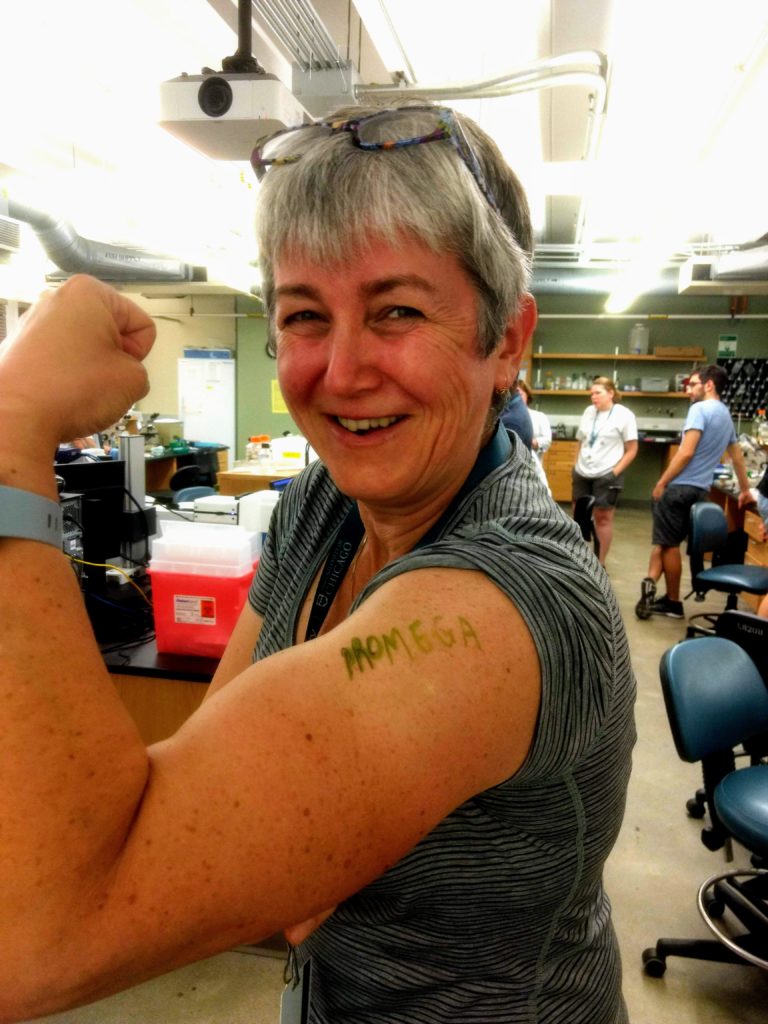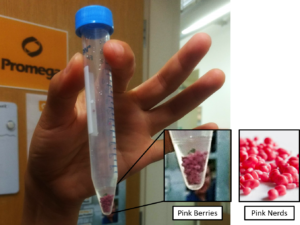This summer, I had the opportunity to go to the Marine Biological Laboratory (MBL) in Woods Hole, Massachusetts. MBL was founded in 1888 as an institution that focuses on research and education. Woods Hole is located on Cape Cod and has rich biodiversity that is the focus of the resident researchers and the many others that travel there each summer. It was here that new model organisms were discovered, allowing significant advancement in various fields. For example, squid have large axons that allowed researchers to expand our knowledge of neurons.
Over 500 scientists from over 300 institutions in over 30 countries come to MBL each year as trainees1. There are 19 advanced research training courses for pre-and post-doctoral scientists in development, reproduction, cell physiology, microbiology, infectious disease, neuroscience, and microscopy. Faculty that teach the courses are leaders in their respective fields. In addition, MBL has a neuro-physiology fellowship program through the Grass Foundation that allows early-stage researchers to come to MBL for 14 weeks to do research.
Promega’s mission to further science education is reflected by our relationship with MBL. Promega provides financial support to MBL, as well as tools, technologies, and Promega scientists to assist with applying Promega products to research studies at MBL. Applications Scientists from the Scientific Applications and Training team support summer lab courses, as well as Grass Fellows and MBL resident researchers. We have an office and lab space (equipped with instruments and lab materials) in the building where advanced research training courses are held, so students, fellows, and researchers can stop by or call/text us to ask questions and get assistance. Since 2013, each Applications Scientist travels to MBL for about a week in the summer to be available to students, so that, as a group, we can help students from as many courses as possible. We have a Helix freezer and cabinet in the lab that stocks Promega reagents. Students from any course can take and use the reagents free of charge.

The advanced research training courses range from 7 days to 7.5 weeks. The students are tasked with learning as much as possible about the subject area. In the longer lab-based courses, the students focus on core and emerging technologies in the field. In lab, they practice techniques that they learned about in class, and then each student develops their own independent research project to complete by the end of the course. It was fun to visit the students in lab in the evenings to chat about what they were working on and see if any Promega products could help with their projects. We are very happy that we had the support of the course staff as well (see image to the right).

The scope of what the students were planning to do in such a short time was truly impressive. One of the students in the Microbial Diversity course wanted to examine the metatranscriptome (collection of expressed genes in a population of multiple organisms) of pink berries, which are only found in the Little and Great Sippewissett salt marshes near MBL. When I first heard about pink berries, I thought of pink fruit. However, they are actually clusters of sulfur bacteria and sulfur-reducing bacteria that look like pink Nerds candy. They are used as a model for how individuals in microbial communities work together. Looking at RNA expression would allow measurement of what genes are activated in each organism and potentially give insight into which metabolic pathways contribute to the bacteria living together. No one had ever extracted RNA from pink berries, so I worked with the student to develop a purification protocol using the Maxwell® RSC instrument. We successfully purified RNA from the pink berries that she collected from the marshes, and then she had the RNA she needed to sequence the genes expressed to learn the role that each organism has in that microenvironment.
This year, we also assisted the Grass Fellows with their research. Rachel Parkinson, a 2019 Grass Fellow, was working on a project to study the effects of pesticide on bees. Bee populations have been in significant decline in recent years, and beekeepers note significant losses of the bees in their hives each year2. This could potentially be due to issues with bee learning and memory that would normally direct them back to their hives. To learn how pesticides could play a role, Rachel treated bees with different chemicals to see how their flight patterns were affected. In addition, she was interested in examining gene expression changes in bee brains to look for molecular effects on learning and memory. Without prior molecular biology experience, this project seemed unattainable. But that’s exactly why we were there to help! Together, we used Maxwell® RSC chemistry to purify RNA from bee brains. Once she had RNA in hand, we also helped her to get up and running with RT-qPCR assays to monitor genes of interest.
One group of resident researchers studies desiccation-resistant algae to understand the molecular evolution of desiccation tolerance. This research is increasingly important as we see greater effects of climate change on agricultural crops. Before our collaboration, manual DNA purification from one algae sample took two researchers a full week to complete. They needed enough DNA of sufficient quality to do whole genome sequencing. Last summer, we began to work with the Cardon lab to develop a rapid, automation-based protocol using the Maxwell® RSC Instrument. We reduced the time it took to purify DNA to 3 hours, during which 16 samples could be purified at once to get more than enough quality DNA. This summer, Elena Lopez Peredo, a Research Scientist in the group, expanded on that work to examine gene expression in the algae, taking advantage of the Maxwell® RSC Instrument that Promega loans to MBL to support summer courses. We had also brought a Maxwell® RSC 48 instrument to our MBL lab, so Elena was able to process 48 samples at once. She was so happy with how efficient the purification was and the time she saved—check out her tweet on Twitter. Other than Maxwell® RSC Instruments that were there for the summer, there was no permanent Maxwell® RSC instrument on campus. This October, Promega donated a Maxwell® RSC Instrument and a GloMax® Discover Multimode Plate Reader to facilitate the work of all MBL resident researchers. We were glad to introduce MBL researchers to Promega technologies that make their research more efficient and open up new avenues of testing.
1 Marine Biological Laboratory Education Home page https://www.mbl.edu/education/
2 The global and European situation with bees and other pollinators. http://sos-bees.org/situation/
